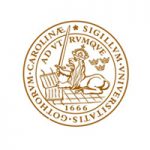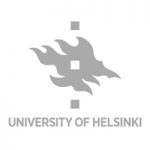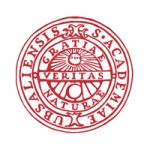项目介绍
Lund University was founded in 1666 and is repeatedly ranked among the world’s top universities. The University has around 47 000 students and more than 8 800 staff based in Lund, Helsingborg and Malmö. We are united in our efforts to understand, explain and improve our world and the human condition.
Lund University welcomes applicants with diverse backgrounds and experiences. We regard gender equality and diversity as a strength and an asset.
Description of the workplace
This position will be located at the Division of Biomedical Engineering, within the Nanobiotechnology and Lab-on-a-chip research area further described here: The research in the Nanobiotechnology and Lab-on-a-chip group
Subject description
Soil-borne plant pathogens cause a large reduction of agricultural yields globally. Treatment, typically by fungicides, is commonly applied preventively or at infection symptoms, but it is difficult to detect detrimental fungi at an early stage to make combat efficient.
In this PhD project we want to develop microfluidic chips and AI-based image analysis to detect and identify soil borne fungal pathogens. These will be tested with sterile cultures, soil samples and experimental fields, and field studies. We also intend to study to what extent we can hear and affect the fungi with sound.
The project will be performed in close collaboration with researchers and PhD students at the Department of Biology within an ongoing collaboration described here: Research in Nanobiotechnology and Lab-on-a-chip
Work duties
The main duties of doctoral students are to devote themselves to their research studies which includes participating in research projects and third cycle courses. The work duties can also include teaching and other departmental duties (no more than 20%)
The work duties include:
- Design, manufacturing and testing of microfluidic chips and systems
- Development and testing of AI-based image analysis
- Testing with fungal cultures
- Field testing
- Publication of research results in journal articles
- Presentation at research conferences
- Interaction with stakeholders such as farmers, analytical labs and authorities
- Evaluation of commercial potential and patentability
- Application for smaller travel and equipment grants
- Teaching, such as lab and project supervision
Admission requirements
A person meets the general admission requirements for third-cycle courses and study programmes if the applicant:
- has been awarded a second-cycle qualification, or
- has satisfied the requirements for courses comprising at least 240 credits of which at least 60 credits were awarded in the second cycle, or
- has acquired substantially equivalent knowledge in some other way in Sweden or abroad.
A person meets the specific admission requirements for third cycle studies in Biomedical engineering if the applicant has:
- at least 45 second-cycle credits of relevance to the subject.
Additional requirements:
- good oral and written proficiency in English
Assessment criteria
Selection for third-cycle studies is based on the student’s potential to profit from such studies. The assessment of potential is made primarily on the basis of academic results from the first and second cycle. Special attention is paid to the following:
Knowledge and skills relevant to the thesis project and the subject of study.
An assessment of ability to work independently and to formulate and tackle research problems.
Written and oral communication skills.
Other experience relevant to the third-cycle studies, e.g. professional experience.
Other assessment criteria:
- Master’s degree in Engineering Nanoscience, Biomedical Engineering, Engineering Physics, Electrical Engineering, Mechanical Engineering, Chemical Engineering, Biotechnology or equivalent
- Experience with
- setting up an experimental design, conducting data acquisition, analysis and interpretation
- manufacturing and testing of microfluidic chips
- development of AI-based image analysis
- sterile culture of fungi
- field experiments in agricultural settings
- setting up acoustic experiments
- stakeholder interactions within the agritech field, innovation, research commercialization and intellectual property
- presentation of research in peer-reviewed conferences and journals
- applying for research funding
Consideration will also be given to good collaborative skills, drive and independence, and how the applicant, through experience and skills, is deemed to have the abilities necessary for successfully completing the third cycle programme.
We offer
Lund University is a public authority which means that employees get particular benefits, generous annual leave and an advantageous occupational pension scheme. Read more on the University website about being a Lund University employee Work at Lund University: Work at Lund University
Terms of employment
Only those admitted to third cycle studies may be appointed to a doctoral studentship. Third cycle studies at LTH consist of full-time studies for 4 years. A doctoral studentship is a fixed-term employment of a maximum of 5 years (including 20% departmental duties). Doctoral studentships are regulated in the Higher Education Ordinance (1993:100), chapter 5, 1-7 §§.
How to apply
Applications shall be written in English and include a cover letter stating the reasons why you are interested in the position and in what way the research project corresponds to your interests and educational background. The application must also contain a CV, degree certificate or equivalent, and other documents you wish to be considered (grade transcripts, contact information for your references, letters of recommendation, etc.).
We look forward to receiving your application!
联系方式
电话: +46 (0)46 222 0000相关项目推荐
KD博士实时收录全球顶尖院校的博士项目,总有一个项目等着你!






